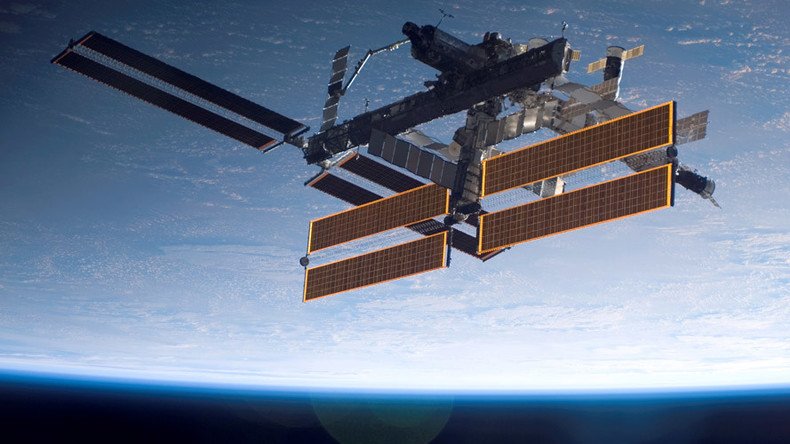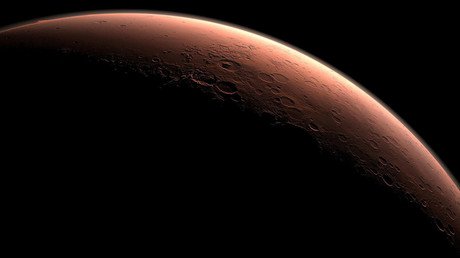Pivot to Mars: NASA to let private companies attach habitat modules to ISS

Beginning this fall, NASA will allow private companies "to add their own modules and other capabilities to the International Space Station" as the space agency transitions its attention to reaching Mars by the 2030s.
In order to both send humans to Mars for an extended period "while also revitalizing the space industry and creating jobs here at home," NASA Administrator Charles Bolden said Tuesday that the agency will continue to develop public-private partnerships that will eventually allow commercial companies to assume low-Earth orbit exploration.
Bolden said that many companies have expressed "a strong desire" to access a docking port on the International Space Station (ISS), allowing the private sector the tools to develop stations of their own while the ISS mission is due to end in 2024.
We’re pushing the boundaries of exploration and imagination. See how in Admin Bolden & @WhiteHouseOSTP blog: https://t.co/SzH8DnUt8fpic.twitter.com/6DG2sD3X84
— NASA (@NASA) October 11, 2016
"Recently, NASA asked the private sector how it might use an available docking port on the ISS," Bolden wrote. "One of the potential uses of such a port would be preparation for one or more future commercial stations in Low Earth Orbit, ready to take over for the Space Station once its mission ends in the 2020s. The private sector responded enthusiastically, and those responses indicated a strong desire by U.S. companies to attach a commercial module to the ISS that could meet the needs of NASA as well as those of private entrepreneurs."
NASA officials said in August that it would like to eventually hand over the ISS to the private sector.
Astronauts install universal docking port on ISS intended for commercial ships https://t.co/M2QWv9Btg3pic.twitter.com/SByy2GbxMx
— RT (@RT_com) August 20, 2016
NASA is also working with six companies that are producing prototypes for deep space habitat modules as part of the agency's Next Space Technologies for Exploration Partnerships or "NextSTEP" program, Bolden said.
The habitats "would evolve into spacecraft capable of sustaining and transporting astronauts on long duration deep space missions, like a mission to Mars," the administrator wrote.
Bolden's announcements came the same day as President Barack Obama reiterated his administration's desire to see ongoing development of NASA's 'Journey to Mars' alongside private companies.
"We have set a clear goal vital to the next chapter of America's story in space: sending humans to Mars by the 2030s and returning them safely to Earth, with the ultimate ambition to one day remain there for an extended time," Obama wrote in a CNN op-ed. "Getting to Mars will require continued cooperation between government and private innovators, and we're already well on our way."
Whether the next president continues with the Obama administration's plans remains to be seen. Bolden has argued that changing NASA's course after six years of focus on a Mars mission would be brutal for the agency.
"This is not a time that we can start over,"Bolden said in a speech last year. "I think we’ve been through enough ‘start overs’ to know that people grow weary. People like to see something where you’re persistent."
He added: "If we change our minds at any time in the next three or four years, which always is a risk when you go through a government transition, my belief is that we’re doomed."















